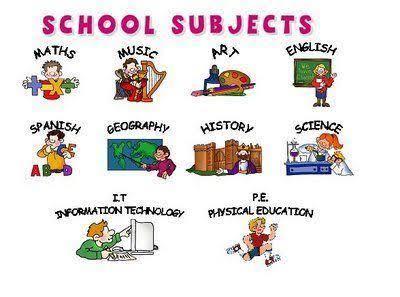Full List Of Compulsory And Essential Subjects For Primary Schools In Nigeria (2025)
The Nigerian primary curriculum, guided by NERDC and UBEC, ensures that all pupils in Basic 1–6 (Primary 1–6)study a set of core compulsory and essential subjects. These subjects aim to cultivate balanced learning in literacy, numeracy, moral values, creativity, digital skills, and cultural awareness.
Table: Compulsory Core & Essential Subjects
Core Subjects (Every Primary 1–6 pupil must take)
| Subject Area | Subjects Included | Purpose & Skills Developed |
|---|---|---|
| English Language | English | Reading, writing, speaking, comprehension, grammar |
| Mathematics | Mathematics | Arithmetic, geometry, problem‑solving, logical reasoning |
| Basic Science & Technology | Basic Science, ICT (Computer Studies), Physical & Health Education, Basic Technology | Scientific thinking, digital literacy, health and tech basics |
| Social Studies | Social Studies (combined civic, history, security, national values) | Civic awareness, national identity, social responsibility |
| Civic Education(within RNV) | Civic Education | Moral values, rights & duties, ethics |
| Cultural & Creative Arts | Music, Drama, Art, Crafts, Creative expression | Creativity, artistic skills, cultural appreciation |
| Religious & Value Education | Christian Religious Studies (CRS) / Islamic Religious Studies (IRS), Security Education | Spiritual growth, moral character, social harmony |
| Nigerian Language | One major local language (Yoruba, Igbo, Hausa, or others recognized regionally) | Cultural identity, mother‑tongue literacy |
| Agricultural Science | Agriculture | Basic agronomic skills, food production awareness |
Additional or Enrichment Subjects (Often Available)
| Subject | Details |
|---|---|
| French Language | Optional; promotes bilingual ability and regional relevance |
| Arabic Language | Offered especially in Islamic schools or communities |
| Home Economics | Pre‑vocational study: basic life skills, nutrition, crafts |
| Pre-vocational Studies | Combines Agriculture & Home Economics for skills development |
| Moral Instruction | Offers character development beyond religious study |
| Drama / Performing Arts / Music | Added artistic exposure in some private schools |
| Sign Language | Optional in inclusive schools |
| Entrepreneurship Basics / Basic ICT | Early exposure to business and computer skills in upper basic levels |
Subject Distribution by Class Levels
-
Lower Basic (Primary 1–3):
English, Mathematics, Nigerian Language, Basic Science & Technology, Social Studies, Religious & National Values, Cultural & Creative Arts, Physical & Health Education, and introductory Pre‑vocational studies -
Middle/Upper Basic (Primary 4–6):
Includes all core subjects, with deeper content and integration of ICT, Pre‑vocational Studies, French (where offered), and sometimes Entrepreneurship or Arabic
Why These Subjects Matter
-
They create a holistic foundation in literacy, numeracy, ethical and social development, and creativity.
-
ICT and Basic Technology aim to boost early digital literacy.
-
Local language instruction fosters cultural identity and regional inclusion.
Frequently Asked Questions (FAQs)
Q1: How many subjects do Nigerian primary pupils study?
A: Typically between 9 and 12 subjects, depending on elective offerings. Core curriculum covers about 8–10, with optional additional ones in upper primary.
Q2: Is ICT compulsory in primary schools?
A: ICT is embedded under Basic Science & Technology and is compulsory from Primary 4, though earlier exposure depends on school facilities.
Q3: Do private schools teach beyond these subjects?
A: Yes. Private schools often include extras like French, Music, Drama, Entrepreneurship, or coding—provided they also teach the national core curriculum fully.
Q4: Do religious studies vary by faith?
A: Yes. Pupils take either CRS or IRS, with Social Studies and Security Education included under Religious & National Values subject grouping.
Q5: Can parents choose additional languages for their child?
A: Many schools offer both Arabic and French as enrichment options, depending on demand and teacher availability.
Conclusion
In 2025, the approved primary school curriculum in Nigeria emphasizes balanced education that includes literacy, numeracy, moral values, creativity, cultural awareness, and foundational tech skills. These compulsory and essential subjects ensure pupils gain a well-rounded start, while elective options give flexibility and enrichment.











